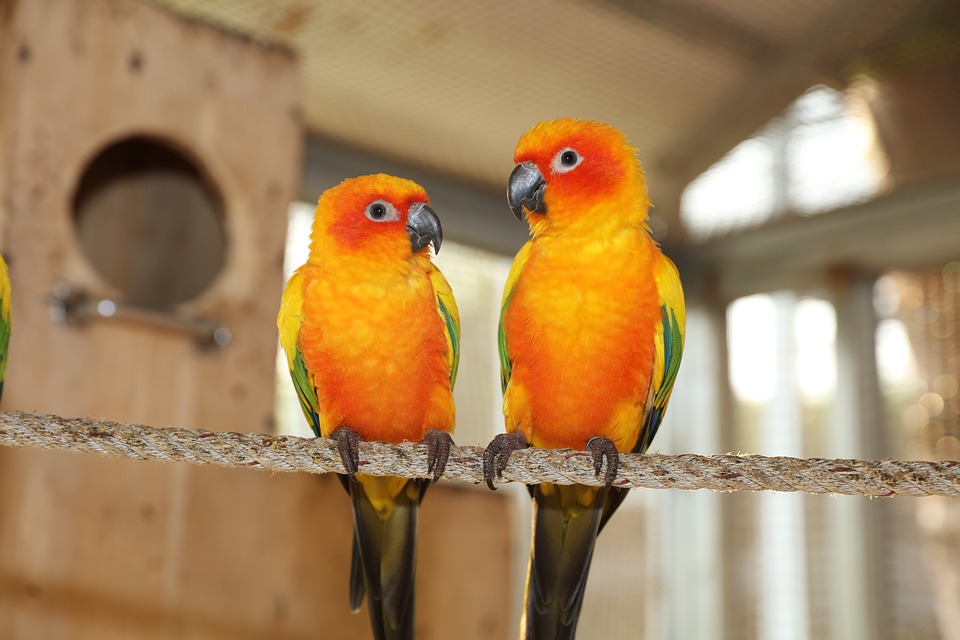Providing Appropriate Outlets for Your Parrot’s Natural Behaviors
Parrots are fascinating creatures with complex behaviors and intelligence. As responsible parrot owners, it is crucial to understand and provide appropriate outlets for their natural behaviors. This article will guide you on understanding and catering to your parrot’s needs, ensuring a happy and enriched life for your feathered friend.
Understanding Parrot Behavior
Parrots are highly social animals that exhibit a wide range of behaviors in the wild. When kept in captivity, it is essential to replicate their natural habitat as much as possible. By understanding their behavior, you can provide an environment that promotes their physical and mental well-being.
1. Flight and Exercise
Parrots are exceptional flyers, and being able to fly is vital for their physical and mental health. If possible, provide a safe, supervised area where your parrot can stretch its wings and fly. Regular exercise helps prevent obesity, strengthens muscles, and reduces stress.
2. Foraging and Feeding
In the wild, parrots spend a significant amount of time foraging for food. Encourage this natural behavior by providing foraging opportunities in your parrot’s enclosure. Use puzzle toys, hanging foraging baskets, or hide treats within shredded paper for your parrot to discover. This stimulates their natural instincts and provides mental stimulation.
3. Chewing and Shredding
Parrots have a strong beak designed for cracking nuts and chewing on branches. Providing appropriate chew toys is essential to prevent destructive chewing on furniture or other household objects. Offer a variety of chew toys made from safe materials like untreated wood, vegetable-tanned leather, or natural fibers.
4. Vocalization and Mimicking
Parrots are known for their vocal abilities and mimicry. Encourage your parrot’s natural vocalization by providing a safe and supportive environment. Engage in conversation, sing, or even play music to stimulate your parrot’s vocal skills. However, be mindful of your parrot’s noise level, especially if you live in close proximity to neighbors.
5. Social Interaction and Stimulation
Parrots are highly social creatures, and they thrive on interaction with their human caregivers. Spend quality time with your parrot every day, engaging in activities like training sessions, interactive play, or simply allowing them to perch on your shoulder. This social interaction is crucial for their emotional well-being.
FAQs about Parrot Behavior
Q: How can I discourage my parrot from screaming excessively?
A: Excessive screaming can be a sign of boredom, fear, or attention-seeking behavior. Ensure that your parrot has plenty of mental and physical stimulation throughout the day. Offer toys, rotate them regularly, and provide a consistent daily routine. Additionally, never reward screaming behavior with attention, as this can inadvertently reinforce it.
Q: How do I handle my parrot’s biting behavior?
A: Biting can be a result of fear, stress, or territoriality. Observe your parrot’s body language and try to identify the triggers for biting. Avoid situations that make your parrot uncomfortable and provide positive reinforcement for good behavior. If biting persists, consult an avian behaviorist for professional guidance.
Q: Is it necessary to clip my parrot’s wings?
A: Wing clipping is a personal choice and should be considered carefully. While it may prevent flight and certain accidents, it also restricts your parrot’s natural behavior and can impact their physical and mental well-being. Consult with an avian veterinarian or a knowledgeable parrot behaviorist to make an informed decision based on your parrot’s individual needs and living environment.
In Conclusion
Understanding and providing appropriate outlets for your parrot’s natural behaviors is crucial for their well-being. By incorporating flight, foraging, chewing, vocalization, and social interaction into their daily routine, you can ensure a happy and fulfilled life for your feathered companion. Remember to observe your parrot’s behavior closely and adapt their environment and interactions accordingly.









